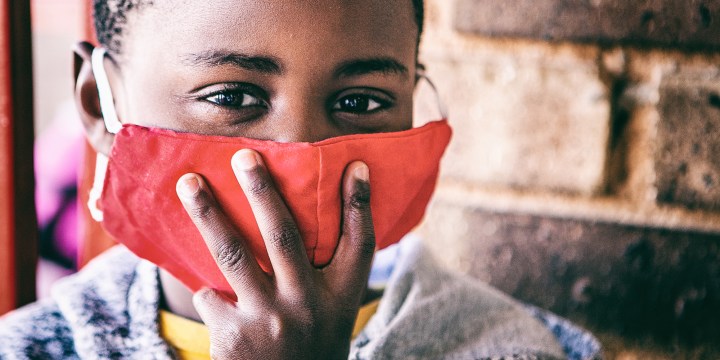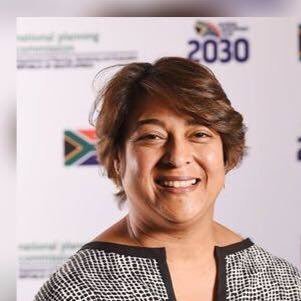CHILD RIGHTS
Strategically and systematically: How the Western Cape Children’s Commissioner will approach her job

Since Christina Nomdo officially began work as the first Western Cape Children’s Commissioner on 1 June, two issues have been in the public sphere: Children going back to school and now, allegations of racism and discrimination against black learners at private schools. She says she’ll tackle these issues strategically and systematically.
On Tuesday morning, the first Western Cape Children’s Commissioner Christina Nomdo appeared virtually before the provincial legislature to discuss her role in protecting the rights of the two million children in the province.
Nomdo began her job on 1 June and barely a week into this role, she appeared before a joint meeting between the standing committees on social development, and the premier and constitutional matters, to explain her office and the responsibilities she would focus in the first 100 days of her term as commissioner.

Western Cape Children’s Commissioner Christina Nomdo. (Photo: Twitter)
In 2019, as part of new Premier Alan Winde’s promises during his maiden State of the Province Address, the social development committee was instructed to find a children’s commissioner — the first in the province and the first in the country. After a selection process that lasted about four months, Nomdo’s was recommended to Winde, who approved her appointment. In May, she accepted the position of the first Western Cape Children’s Commissioner.
Responsibilities of the Children’s Commissioner include monitoring, investigating, researching, educating, lobbying and advising and reporting on matters relating to children in the province. The office is independent and accountable to the provincial legislature. As part of her duties, Nomdo must report to the legislature on actions undertaken by the provincial government to promote and protect the interests of children in the province. According to Wazimap, there are just over two million people under the age of 18 in the Western Cape, with 93.1% of these being school-aged. Ninety percent of children in the province are at school.
Addressing members of both committees, Nomdo said “the breadth and responsibilities given to the commissioner show the commitment of government that they really want to improve the rights of children”.
Originally from Belhar on the Cape Flats, Nomdo is more than capable. She was until recently the child rights specialist commissioner for the National Planning Commission. Between 2009 and 2017, she worked as the executive director of the Resources Aimed at the Prevention of Child Abuse and Neglect (Rapcan). She is pursuing a PhD in public law from the University of Cape Town, specialising in children’s rights.
Nomdo said her new job started with learners returning to school after the extended closure due to the Covid-19 lockdown. Grades 7 and 12 headed back to school this week and other grades will return within weeks. Nomdo described 200 inputs she had received from learners across the province. She said “learners are anxious” about going back to school.
The EFF’s Melikhaya Xego questioned what Nomdo could do about the issues around racism that had arisen in the past two weeks. Allegations of racism and racial discrimination against black learners have been levelled at certain private and former Model C schools in Cape Town and other parts of the country.
Daily Maverick has published pieces on these allegations: Instagram is the digital street of Black Lives Matter protests in South Africa and Racism allegations surface at private schools.
“Equality and dignity rights are the cornerstones of our Constitution and yet they seem to be the hardest rights to claim and enjoy,” said Nomdo in response to Xego.
“And this [is] really an indictment on all of us as a society that we are not working hard enough to bridge the gaps of inequality left by legacies [of apartheid]”, added the commissioner. Nomdo said her office would make contact with @yousilenceweamplify , the Instagram account where present and former students could anonymously post incidents of racism and racial discrimination at private and former Model C schools.
Raising the importance of learners speaking out about their experiences, she said:
“We take our lead from them and when they raise issues, it means the entire society needs to put emphasis and give credibility to their claims.”
Nomdo said her office would work strategically and systematically on issues raised within her term. “Be assured this is on my agenda to be worked on.” DM


















 Become an Insider
Become an Insider